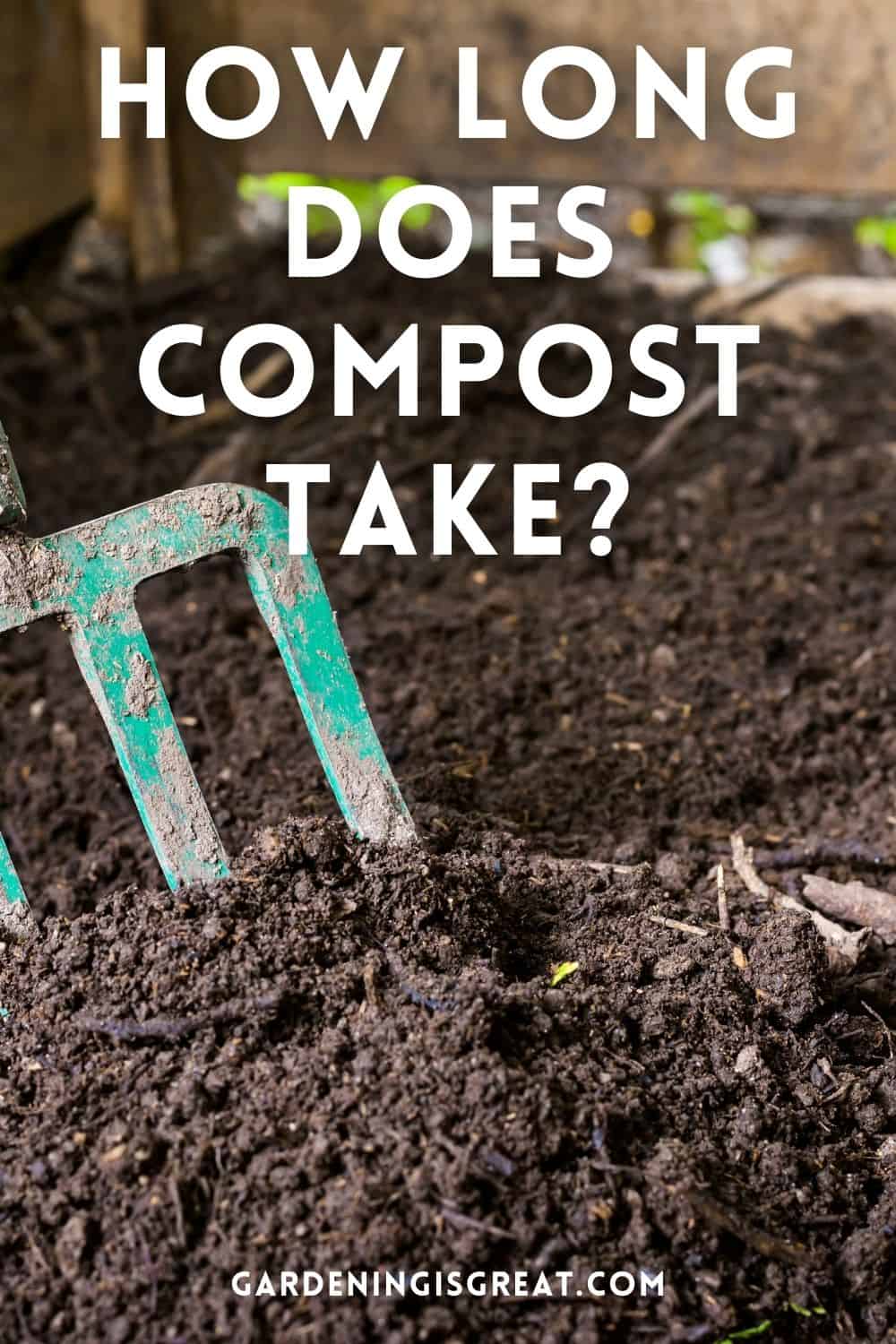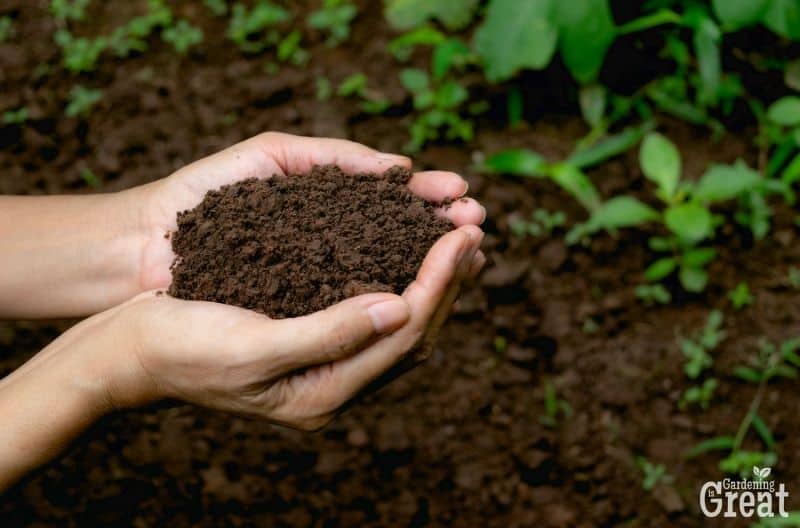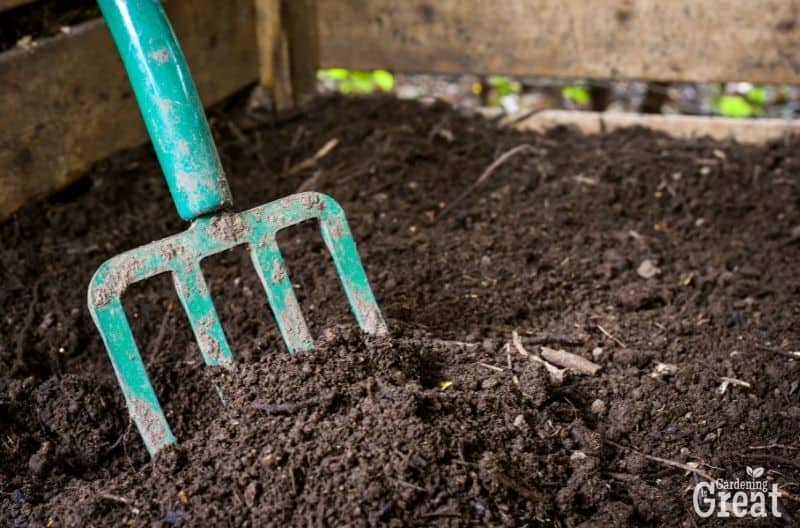Is My Compost Finished: How Long Does Compost Take?
Composting is a great way to reuse organic materials that would otherwise be thrown away. Composting takes time and requires a bit of effort, but the end result is amazing!
Not only will you have nutrient-rich, good soil for your plants, but you’ll also keep all those scraps out of the landfill.
But how does one know when their compost has finished?

What Is Composting And Why Do It?
Well, the simple answer is that composting is a way to recycle organic materials. Put simply, it’s taking all of the nutrients left over from your plants and using them again – in your next batch of plants.
Of course, this doesn’t happen overnight. The process takes time but if you have the patience, you will be rewarded with soil rich in nutrients and beneficial microbes for your plants to use as they need.
I’ve seen quite a few different ways to create compost piles. I tend to stick with a simple three-layer method that works well for my needs.
The key ingredient here is patience – you have to be willing to give the whole process time to work. Here are the ingredients:
- 1 layer of ‘green’ material (use a high nitrogen source: kitchen scraps, grass clippings, manure, etc)
- 2-3 layers of ‘brown’ material. This is to prevent anaerobic conditions. If you have too much green and not enough brown, your compost heap will start producing methane instead of heat.
How Long Does Compost Take?
Composting can take a while-anywhere between two weeks to over six months. Things such as the type of material being decomposed and the size of your pile can affect how long compost takes.

You might not be able to see it, but microorganisms are feeding off of all the waste in your compost pile and breaking it down. But you can’t rush them-just like with any meal; they need time to do their job.
Several factors can affect how quickly your compost will decompose, including climate conditions (dampness/temperature), the amount of green material compared to brown and shredded or roughage, and the size of pieces in your compost.
Here are a few other things you can do to speed up the process:
- Try adding some soil to your compost. Adding a small amount of soil will help provide the microorganisms that break down organic matter with an environment similar to the type they would find in the natural world.
- Turn over your pile every 1-3 weeks, or when you notice it starting to smell especially bad. More air exposure will kill off most of the bad odors and allow new oxygen to enter the pile. Turning it over also helps bring oxygen underground, which is where most of the work takes place.
Is My Compost Finished?
There are a few different ways you can tell if your compost is finished. Overall, it should be dark brown or black for finished compost and completely broken down, leaving only bits of straw-like texture left behind (such as that found in soil).

There are a few things to look for when trying to determine if your compost has finished.
Finished Compost Looks Like Dirt:
One way to tell if your compost is finished is by looking at its texture-is it loose and crumbly or still really firm? Will it hold together tightly in a ball if you water your pile, or does it run through your fingers like sand? If it’s still really firm, your compost is probably not finished.
Finished Compost Smells Like Earth:
Another way to tell if your compost has finished is by its smell if you stick your head in the pile and take a big whiff, does it smell earthy? Or like ammonia? A finished compost pile should smell like the earth.
If you’re not sure your compost has finished, just let it keep on cooking! The microorganisms are doing their job no matter what.
Benefits of Composting for Plants and Gardeners
If you use compost in your garden, all of your plants will benefit.
First of all, the soil will contain more organic matter. This provides plants with nutrients that are easily accessible and available for use.
Compost is also a great source of microbes. Microbial life plays an essential role in the health of your garden because they provide many helpful services to plants like:
- adding nutrients (nitrogen, phosphorus, and potassium) to the soil as they break down dead plant matter
- protecting certain types of plants from harmful fungus by attacking them before they can infect the plant.
- fighting off pests that try to feed on your plants (like aphids)

If you’re looking for a way to be more sustainable and eco-friendly, then composting is one of the best ways you can do this. The process of turning organic materials such as food scraps into nutrient-rich soil has many benefits including helping your garden grow healthier plants with fewer pests.
We’ve discussed some tips that will help speed up the process while also providing essential information about what factors affect timing.
Looking for more on composting? Check out these next:
